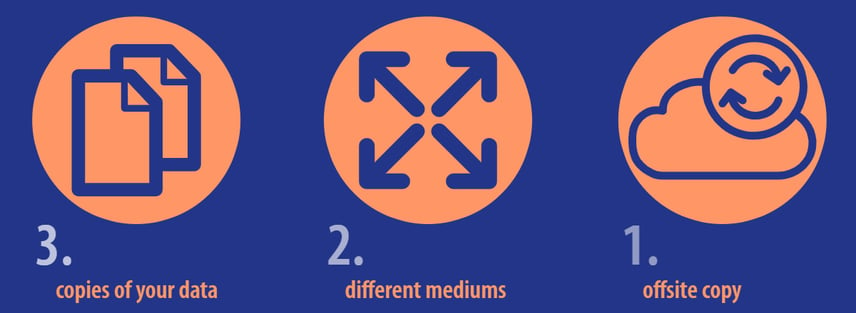Unless you've isolated yourself from the world, I’m sure you have seen the news feeds on the hurricanes and the damage they are causing. These disasters bring up the perfect opportunity to discuss cloud backup solutions and the importance of your business continuity plans when faced with these conditions.
More often than not, I see businesses disregard planning for disaster recovery and business continuity (BCDR) entirely, or they don’t plan for worst case scenarios.
Cloud backup solutions and your continuity plan.
Let’s build a scenario that has probably just happened to some businesses.
We have a small business that deals with crucial data for not only themselves but their clients as well. The company takes regular backups nightly on a local backup solution as part of their DR plan and their BC plan. One night, a particularly bad storm causes flooding on the business’s premise and renders all the equipment in the room destroyed. Likewise, all of their clients faced similar situations and now need this business to resume operations.
In this situation, what is the business to do? There are expensive recovery methods that involve sending the storage medium to a recovery specialist, but with waiting periods possibly stretching into months, due to others doing the same, you won’t be able to fulfill your customer’s needs in a timely fashion.
What is a cloud backup?
A cloud backup is the data you are backing up like usual, except the copy is sent to an offsite location. How the data is stored and retrieved is what differentiates each of the solutions.

Enterprise Backup Solutions
Choosing the right cloud backup solution is an important business decision and can mean the difference between staying in business or folding after an event has occurred. When choosing your solution, the key elements you should look at are:
- Reliability: Your backups are no good if they aren’t consistent or working at all.
- Customizability: Fitting the backup need to a proper solution is a must. The more options for backup and recovery, the better you can mitigate different scenarios.
- Ease of use: Being able to easily navigate, backup, and restore means proper utilization of the product and ensuring it is functioning properly.
- Geographic location: Ensuring your data isn’t in the same geographic location as your data source makes sure that in a major event, your data won’t get potentially destroyed at the data center that is suffering the same event.
For these reasons, we have chosen Datto as a partner for our cloud backup solution because of the flexibility that each of their solutions provides in terms of backup and restoral for the different elements we need to be backed up. They also provide cloud-to-cloud backup, for those cases where a business stores their files in another cloud storage platform, but need the redundancy and customizable recovery options. Remember that just because it’s in the cloud, doesn’t mean it can’t disappear.
Cloud backups are one of the best solutions for ensuring you have a total backup plan, but ensuring that the solution fits your needs and expectations is key when doing your planning. With the weather events going on lately, I urge you to review your DR/BC plans and see if offsite and cloud backups are included in your plan.
